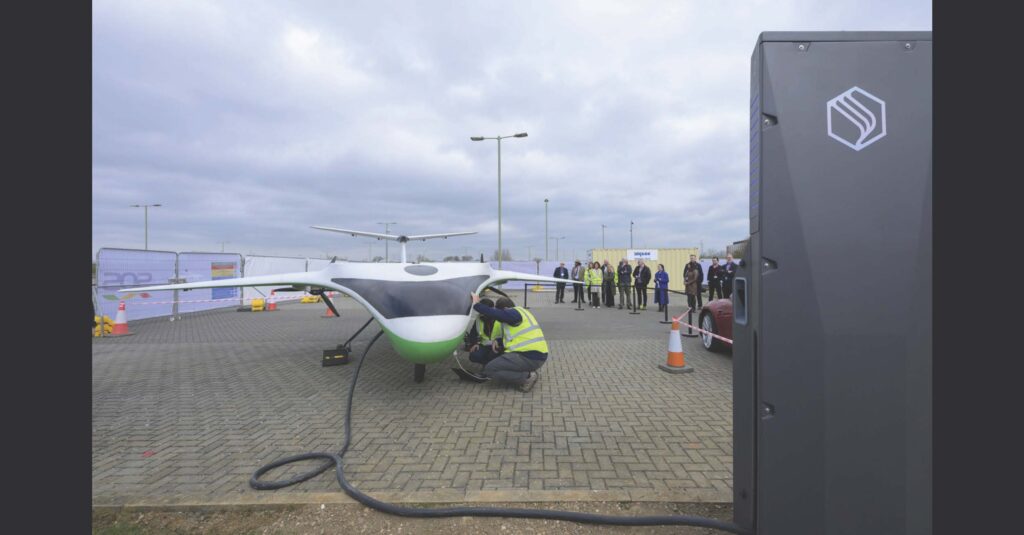
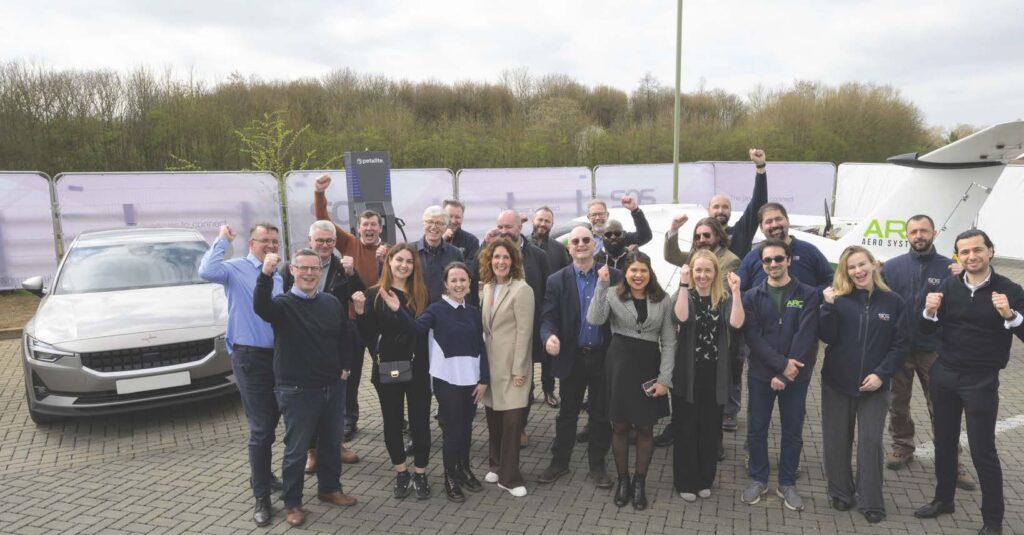
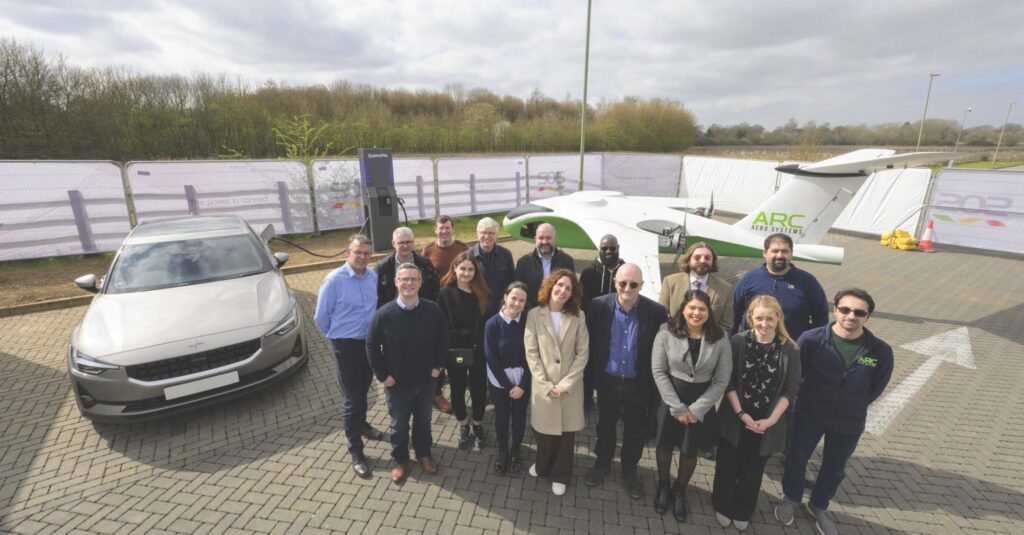
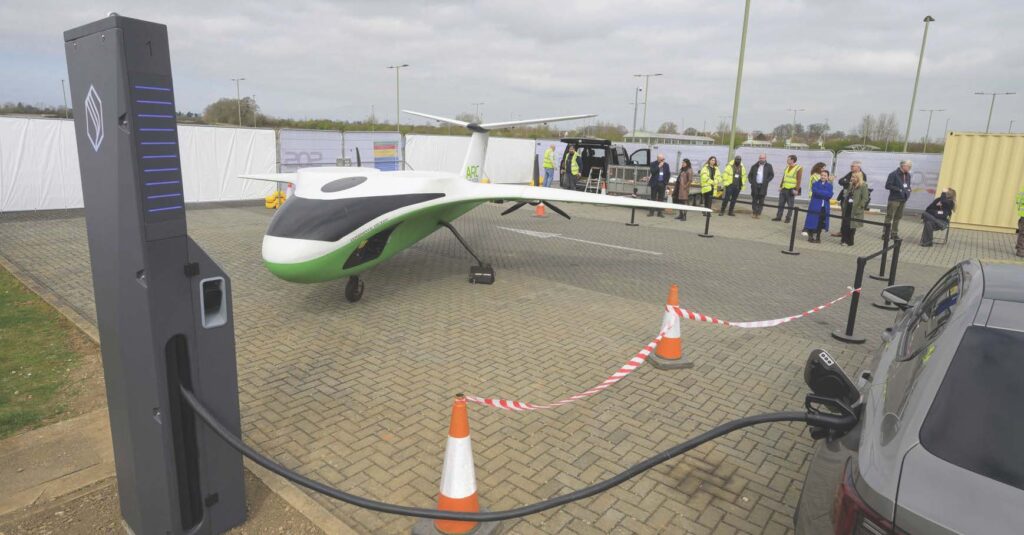
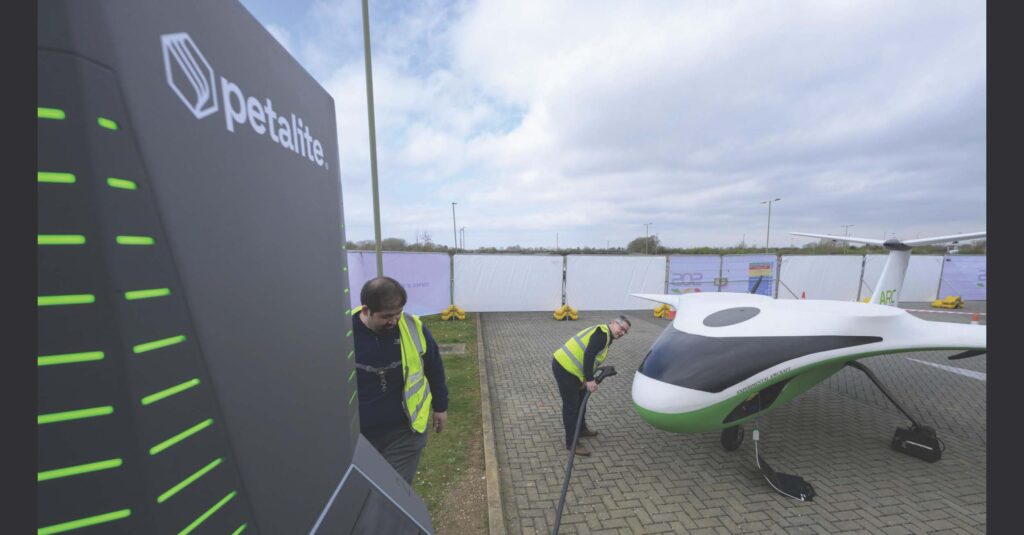
Bicester, Oxfordshire – 26 March 2025 – ARC Aerosystems is delighted to announce a significant milestone in the advancement of electric aviation: the successful demonstration of the Future Flight and Land Infrastructure Programme (FFLIP) in Bicester, Oxfordshire. As a key consortium member, ARC Aerosystems played an integral role in this groundbreaking project, which showcased vital charging infrastructure designed to power the next generation of electric vertical take-off and landing (eVTOL) aircraft, drones, and electric vehicles (EVs). The project is a proud component of UKRI’s Future Flight Challenge, delivered by Innovate UK and the Economic and Social Research Council (ESRC).
Building the Foundation for eVTOL and Advanced Air Mobility (AAM)
The eVTOL industry holds immense potential to revolutionize transportation, promising faster, cleaner, and more efficient air mobility across urban and rural environments. This vision, encompassing regional and inter-city connectivity, hinges on the development of a robust and scalable charging infrastructure. Through collaborative projects like FFLIP, ARC Aerosystems is actively contributing to building the foundational elements of advanced air mobility – a new and critical sector for the UK.
ARC Aerosystems’ Contribution to Project Objectives
The FFLIP project aimed to develop cutting-edge technology within each consortium member to support the high-power demands of future electrical aircraft and airport infrastructure. ARC Aerosystems was crucial in providing eVTOL prototypes for real-world testing, enabling the practical validation of the developed charging solutions. The project focused on achieving ambitious design performance targets, sustainability objectives, and meeting critical end-user requirements for the future of flight.
At its conclusion, FFLIP delivered a full-scale, multi-modal demonstration at the Oxfordshire site. This showcased a 600kW charger infrastructure with multiple power configurations, proving its capability to support the rapid, continuous charging of electric ground vehicles, trucks, drones, and critically, eVTOL aircraft.
Addressing the Ultra-Rapid Charging Challenge for eVTOLs
eVTOLs demand ultra-rapid, high-capacity charging to support their demanding duty cycles and enable continuous operations. The FFLIP project tackled the complex challenge of developing a 600kW charging solution capable of sustaining 24-hour operations while ensuring grid stability, energy efficiency, and cost-effectiveness. Innovative charging technology, pioneered by our consortium partner Petalite, was instrumental in managing power demand fluctuations and preventing grid strain, particularly important in high-density urban environments.
Collaborative Success: Key Consortium Members
The success of FFLIP is a testament to the strong collaboration among its members:
- ARC Aerosystems: Provided crucial eVTOL prototypes for real-world testing, enabling the practical validation of the high-power charging infrastructure.
- Petalite: Led the project and developed and tested the rapid charging solution for eVTOL and EV infrastructure.
- Oxfordshire County Council (OCC): Provided the demonstration site and power supply, actively supporting the transition to zero-emission transport.
- Midlands Aerospace Alliance (MAA): Ensured aerospace safety compliance and worked with the Civil Aviation Authority (CAA) to shape eVTOL charging regulations, paving the way for safe integration.
Additionally, SOS Synergy expertly designed and installed the electrical infrastructure, managed the associated civil engineering, and oversaw the overall demo site, ensuring a seamless and effective demonstration.
A Step Closer to Advanced Air Mobility (AAM)
The project’s conclusion was marked by a successful demonstration where Petalite’s prototype DC charge post and power hub simultaneously charged both an electric vehicle and a drone. This practical test at the Oxfordshire site, utilizing our advanced capabilities, validated the viability of a high-power, multi-modal charging infrastructure and the collective achievements of all consortium members.
This demonstration represents a pivotal step forward in developing the essential charging infrastructure required to support advanced air mobility in the UK. Projects like FFLIP provide invaluable insights into the potential for high-power, scalable charging solutions that will underpin future autonomous air logistics, air taxis, and next-generation aviation. ARC Aerosystems is excited to be at the forefront of this transformative journey, contributing to a truly electrified and sustainable future for air and ground mobility.
#eVTOL #EVChargingInfrastructure #SustainableTransport #FutureOfMobility #AdvancedAirMobility #ARC_Aerosystems

